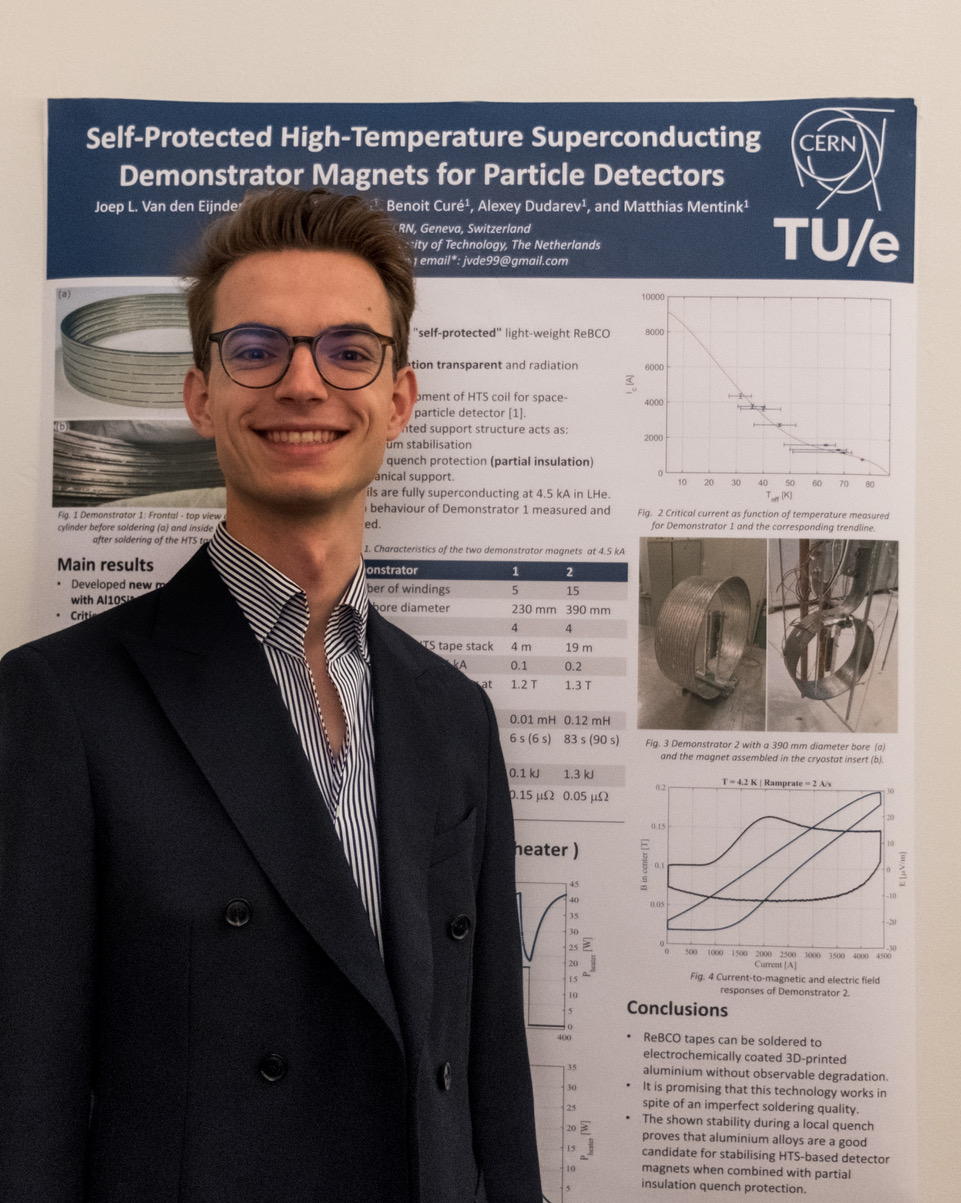As part of my graduation project in the ATLAS magnet group at CERN, I got the opportunity to attend the 2023 European Conference of Applied Superconductivity in Bologna, Italy.
It was my first conference and I was the only one in my group who went, which was a bit scary at first, but I quickly realized that a friend who I met during my Fusenet-funded internship at ITER would also be there! I traveled to Bologna and stayed very close to the old-town, located at one of the city’s famous porticoes. The evening before the conference, my friend showed me around his city, and instead of being nervous, I got more and more excited for the conference.
Once at the conference, I attended lots of talks from experts in the field of superconductivity. The talks encompassed a wide range of technologies, from HTS motors to superconducting detectors and large- scale fusion magnets. But next to these experts, I also got the opportunity to present. I gave an oral on my supervisor’s work and presented my own work during a poster session. My work concerns the development of prototype magnets for future detector magnets, made using ReBCO, a high- temperature superconductor that also shows great potential for fusion.
From both presentations I gave, I especially liked the poster session, as it wasn't one-way communication but you could adapt your talk to the interest and response of the public at that moment, and deliberate on solutions for problems you both encountered.
I met a PhD student whom I know from CERN, he knew a few others, and over the days I met more and more students, and all together we had a great time during the coffee breaks and in the evenings. The city really put the effort into showing their culture at the conference, and we got to enjoy Italian opera, food, wine, and coffee!
What particularly sparked my interest is that not only researchers from academia were present at the conference, but also many researchers from fusion companies, and ReBCO manufacturers. There were people from recent start-ups such as Proxima fusion, Renaissance fusion, but also larger companies such as Commonwealth Fusion Systems and Tokamak Energy. Quench detection, quench protection, and the mechanics of the large pancake coils needed for fusion are exciting areas, for which still a lot of research is needed before we can have a working fusion reactor using high-temperature superconductors. These companies are growing and recruiting!

